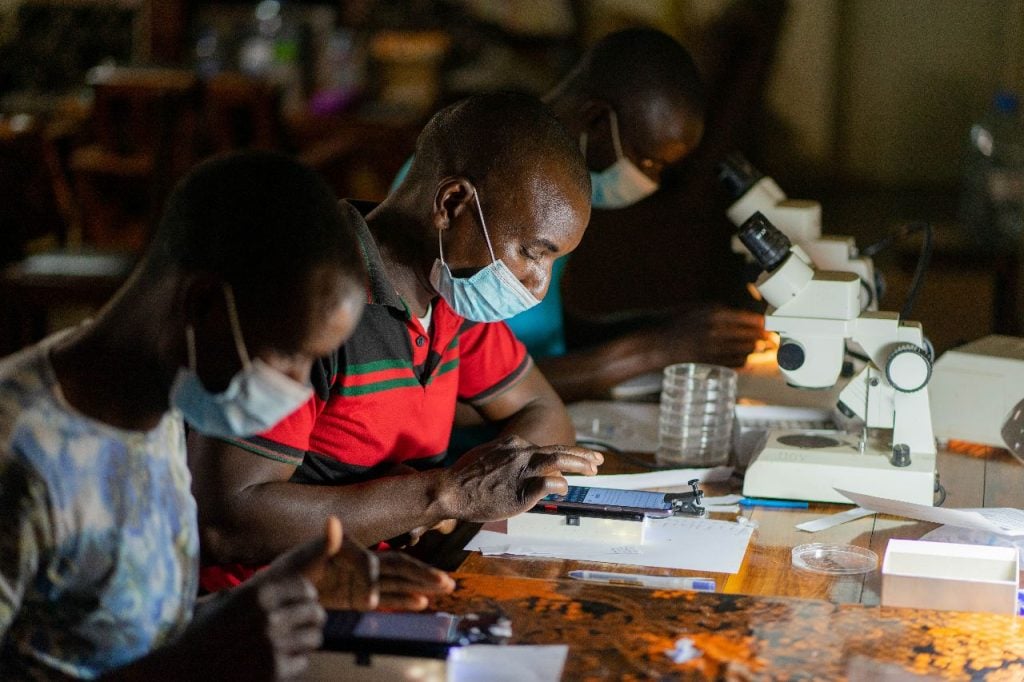Celebrated annually on August 20th, World Mosquito Day commemorates Sir Ronald Ross’ 1897 discovery that mosquitoes transmit malaria. According to the World Mosquito Program, the day serves as an opportunity to raise awareness of the dangers posed by mosquito-borne diseases and the ongoing efforts to combat the world’s deadliest creature.
One of those efforts is VectorCam, a portable, easy-to-use field tool that can automatically and accurately identify mosquito species using computer vision. The device was created by Soumya Acharya and students in the The Johns Hopkins Center for Bioengineering Innovation & Design (CBID).
“VectorCam is a very simple device with a small magnifying lens that converts your low-cost smartphone into a virtual entomologist,” said Acharya.
Efforts to eliminate malaria rely on high-quality vector surveillance data. Vector surveillance is the process of analyzing the population characteristics of mosquitos, such as species, sex, and abdominal status, in a given location in order to make informed decisions toward elimination of vector-borne diseases. This data is vital to inform targeted malaria interventions decisions, such as the distribution of bed nets or indoor residual sprays.
But relying on trained entomologists to perform analysis takes significant time, hampering timely interventions in high-vector density areas. With VectorCam, untrained field workers can take high-quality, high-resolution images of mosquito specimens, enabling the expansion of vector surveillance activities. The innovation is currently being tested in the Adjumani and Mayuge districts of Uganda.
The project is supported by the Gates Foundation, and Bill Gates recently featured VectorCam on his blog. Watch the video about the project below:

